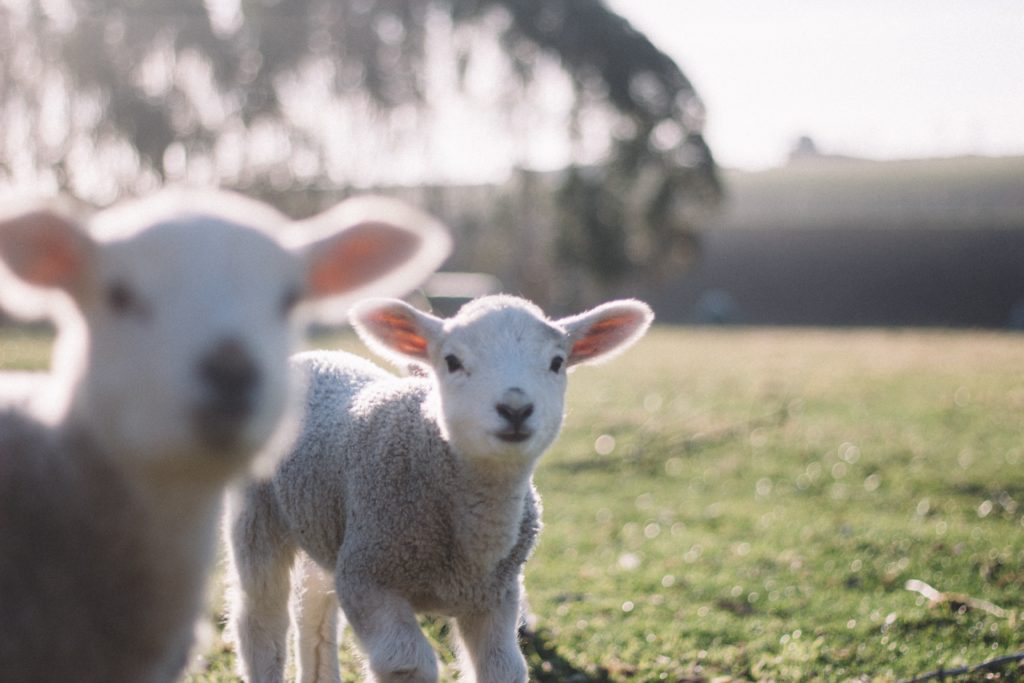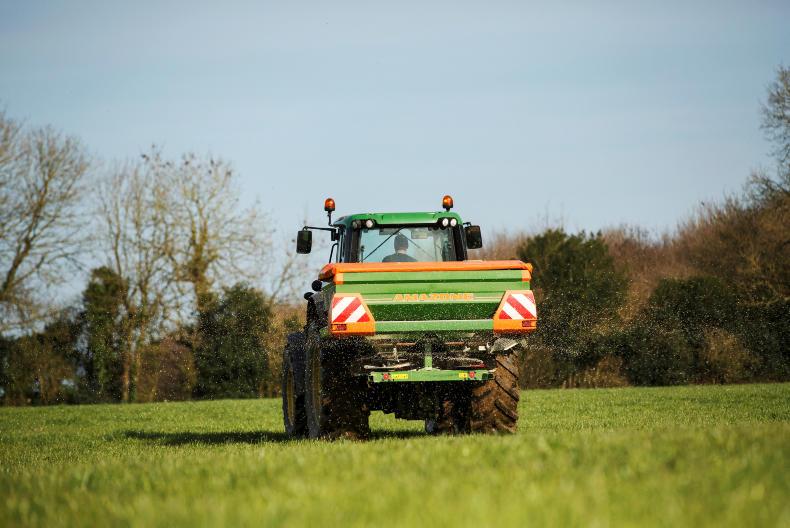COVID-19 Planning to manage the way ahead
April 6, 2020
John Sands, Senior Beef and Sheep Adviser, CAFRE
Farmers are adopting new approaches in the face of the COVID-19 pandemic.
It is essential to follow the latest advice outlined on the Public Health Agency website. The site is updated daily and provides practical advice and important information for you and your family in these very difficult, challenging times.
It’s a busy time of the year on most farms with calving, lambing and field work all taking place. Neighbours, family and friends are usually all called upon to help out but this year it is essential to minimise the number of people coming onto your farm due to the risk of catching or passing on COVID-19. In the situation where help is needed, avoid close contact, less than 2 metres’, with people other than the family you live with. Ensure that disposable gloves are worn by everyone working on the farm and that hands are thoroughly washed afterwards with soap and water.

Veterinary practitioners are following government guidance on COVID-19 and most will only be attending farms to deal with emergency and welfare cases. They will be practising social distancing. Two practitioners may have to attend if the farmer has been affected by COVID-19. They are also available by telephone to provide advice and guidance and are dispensing medicines from the practice to farmers using safe procedures. No routine veterinary work will be undertaken but TB tests will take place as normal unless rearranged. Brucella tests are being carried out by DAERA veterinary service staff as normal.
It is important that we protect elderly members of the family, over 70s’, by asking them to stay indoors. Do however take time to check on them and other elderly neighbours and friends to ensure that they remain in good health and spirit. Avoid visiting unless it’s to help out or deliver supplies.
Have you a plan in place for someone to take over on the farm if you or another family member falls ill. Most farmers are too busy to take on the work on another farm at this time but farm relief services may be an option.
Livestock markets are closed for two weeks but meat processing plants are still open for business as they have been able to put in place working practices to allow this. You can deliver finished livestock to the processor for slaughter without compromising your risk of catching COVID- 19. You should speak to your local processor beforehand.
Plan to get stock out to grass earlier to reduce the demand for silage, and the need to feed concentrates. This should enable you to manage livestock which are normally sold in springtime, holding onto them for a longer period. It will also reduce the workload in the farmyard and the pressure on manure storage. Nitrogen fertiliser should be spread now, much earlier than usual, to speed up grass growth and allow for this earlier turnout.

Ground conditions have greatly improved recently due to the spell of dry weather. It should be possible to get slurry spread. If there is too much grass cover consider using a contractor to spread the slurry using trailing shoe or dribble bar spreading techniques as this will greatly reduce the area of grass leaf contaminated with slurry. This will result in greater grass growth because the leaf area, which absorbs the sunshine to grow the grass, is less contaminated.
Consider whether you have adequate supplies in stock, for example fertiliser, feedstuffs, veterinary products and fuel. Local supply businesses have put in place good working procedures to enable you to purchase, collect or have delivered farm supplies which greatly reduce risk. Spring is always the busiest time of year for merchants and it is important that you work with your suppliers and plan ahead to ensure timely deliveries of feed and fertiliser. However, it is important to avoid buying more than you need as this puts more pressure on the supply chain and can result in delays for everyone.
If you are unable to arrange sales of livestock over the next period of time consider your cash flow situation and your ability to pay bills? It may be worth contacting your bank to re-arrange overdraft facilities to cover periods where there could be a shortfall of cash.
If you want any further information on any of the technical points highlighted above please contact your local DAERA Direct office on 0300 200 7840 who will provide you with contact details of your locally based CAFRE adviser, or check the DAERA website Corona virus COVID-19 Frequently asked questions page
